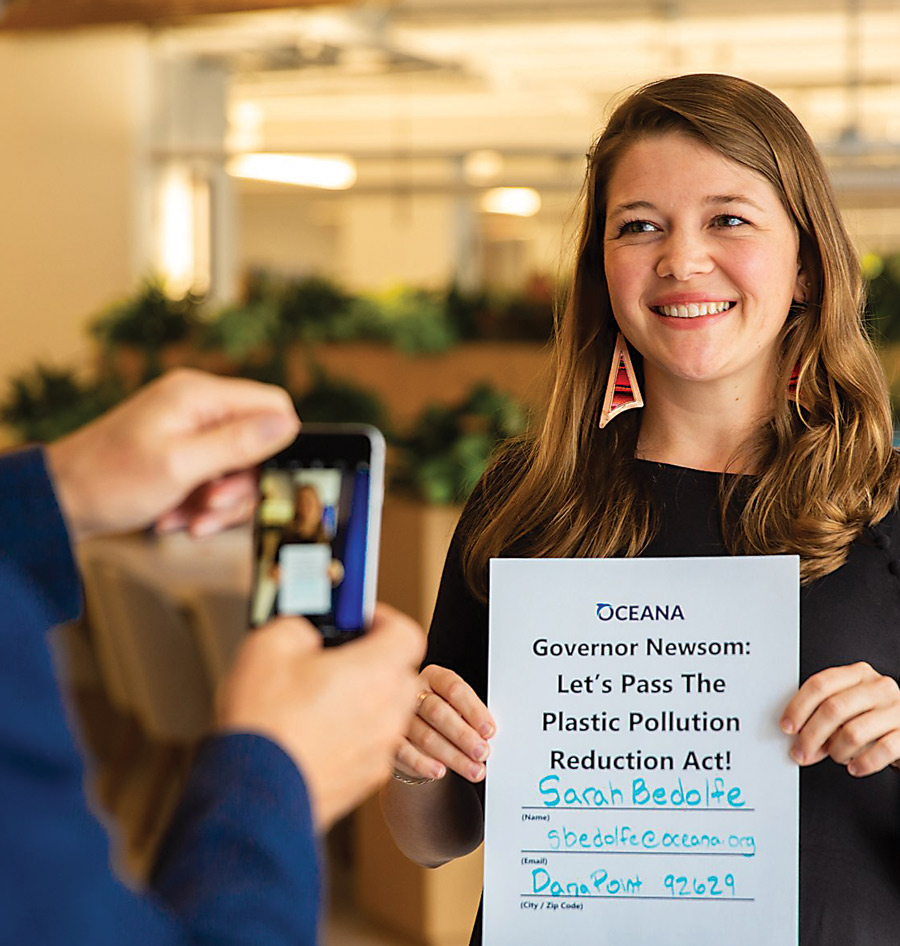
Sea Change
“The ocean is a beautiful, amazing place, and I reconnect with it whenever possible,” she says. “It’s definitely a place where I feel happy and at home.”
Now a marine scientist at the nonprofit Oceana, Bedolfe wants the ocean to retain its appeal as a place for recreation and awe-inspiring creatures — and as a source of livelihood. Oceana has offices around the world and coordinates with conservation groups globally to find ways to sustain the oceans and implement national policies to protect them. Bedolfe is part of the organization’s science and strategy team at its headquarters in Washington, D.C. The team’s goal is to provide scientific research for conservation projects in 10 countries. Their efforts include evaluating potential new projects based on threats to marine biology, government systems, and the feasibility of solving their problems. “What I love about my job is that I get to collaborate with my colleagues around the world and connect them with one another and provide resources,” she says.
Bedolfe’s writing and scientific skills were nurtured at Swarthmore, where she graduated with a biology degree. She earned a master’s in marine biology from the University of Groningen in the Netherlands, where she was born.
Bedolfe says Swarthmore Professor of Biology Rachel Merz, now retired, helped strengthen her understanding of the scientific method.
“Several of [her] courses involved designing and carrying out our own experiments and writing our results in a paper,” she says. “That prepared me for the field work and lab work I had to do in grad school.
“The skills are still important to me — even if I’m bound to a desk now.”